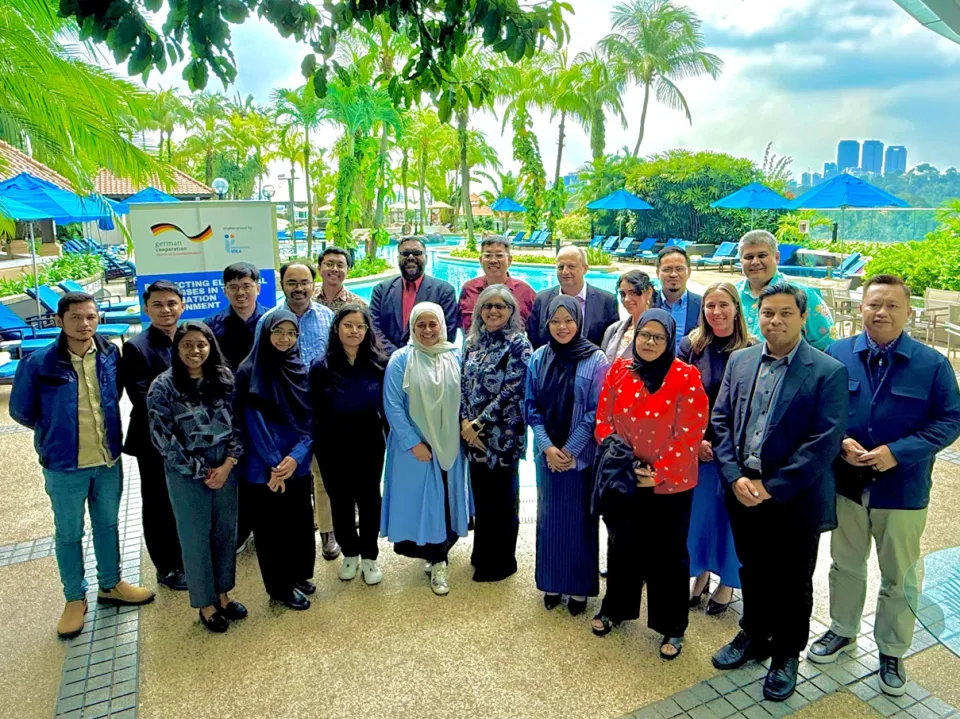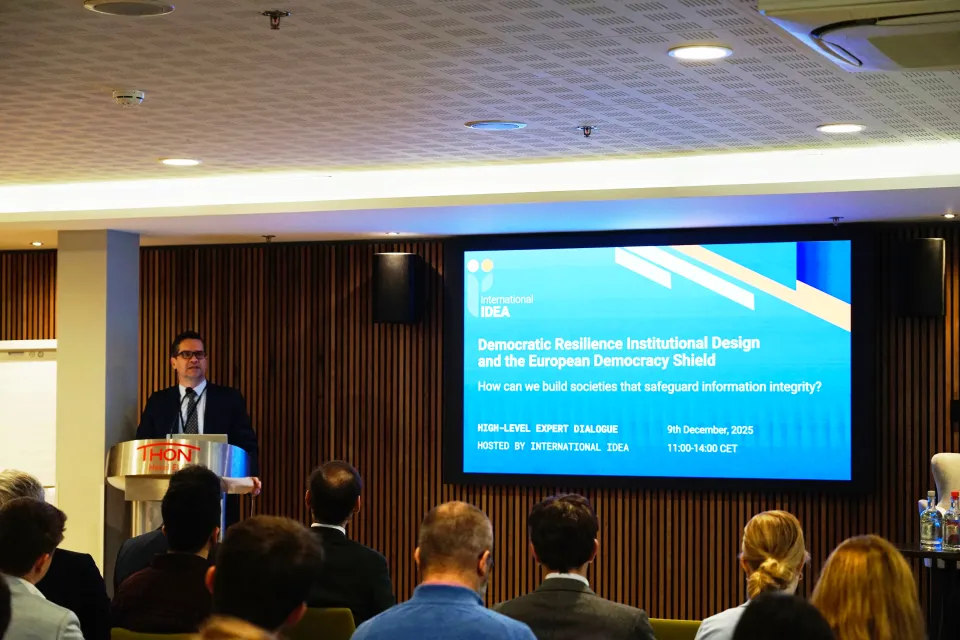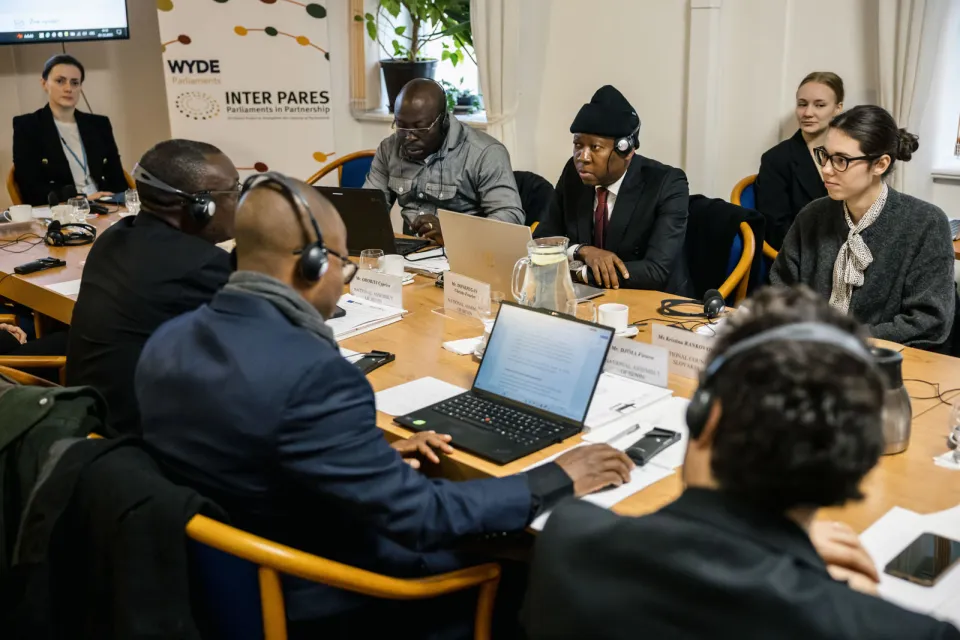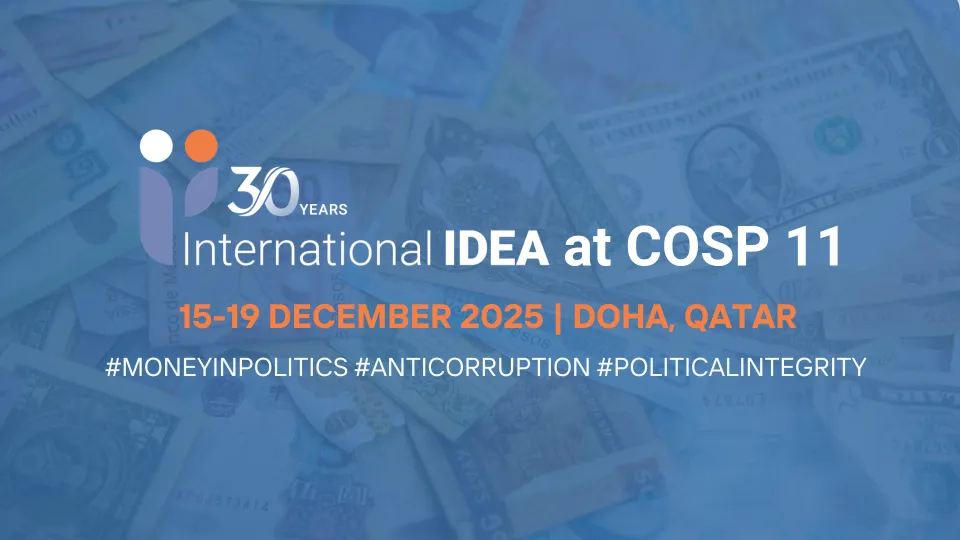Social media, transition of power and campaign finance during Argentine elections 2019
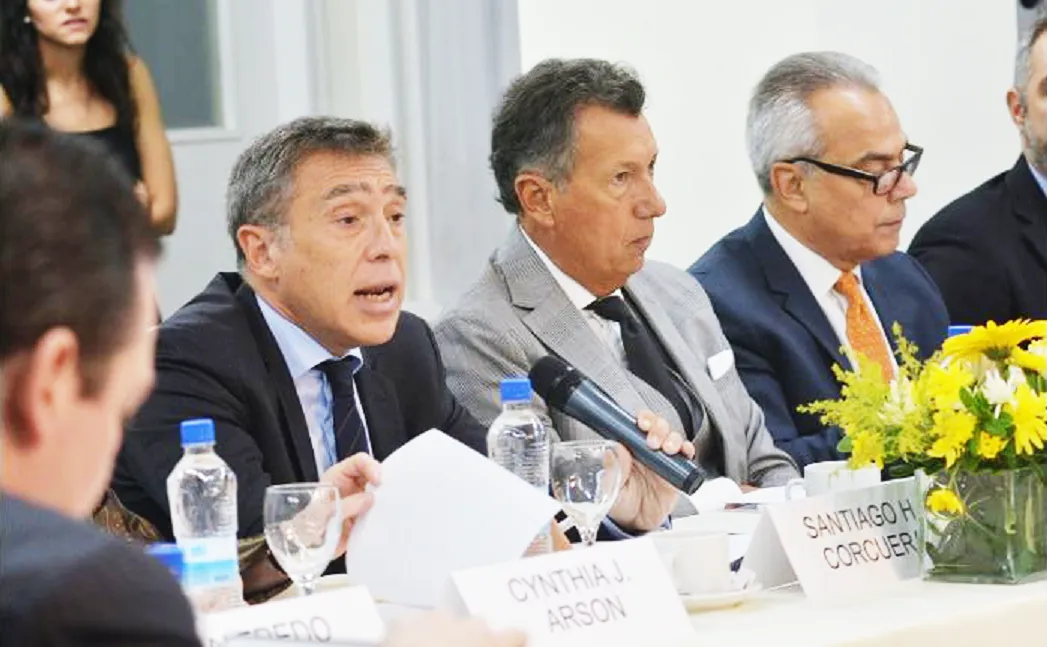
A seminar on the Argentine Elections was held on 11 March 2019 at the headquarters of the Argentine Council for International Relations (CARI, for its Spanish acronym), in the city of Buenos Aires, Argentina. The event was organized by the National Electoral Chamber, the Wilson Center, The Annenberg Foundation, CARI and International IDEA, represented by its Regional Director for Latin America and the Caribbean, Dr Daniel Zovatto.
Este artículo se encuentra disponible en español.
The seminar saw the participation of justices of the National Electoral Chamber, Dr Alberto Dalla Via and Dr Santiago Corcuera; the President of the Annenberg Foundation, Ambassador David Lane; the Director of the Latin America Program of the Wilson Center, Dr Cynthia Arnson; Justice José Luis Vargas of the Federal Court of the Judicial Power of the Federation, who was the chief guest for the seminar; prominent politicians and legislators; representatives of social media platforms Twitter, Facebook and Google, civil society as well as research centers specializing in the subject.
The programme addressed three main issues:
- Responsible use of social networks during electoral campaigns;
- Orderly Transition of Power; and
- International best practices in campaign financing.
This last topic was addressed by Julia Pomares and Carolina Tchintian of Center for the Implementation of Public Policies for Equity and Growth (CIPPEC, for its spanish acronym) and by Daniel Zovatto of International IDEA.
During his presentation, the Regional Director of International IDEA noted that the Argentine political financing system suffers from serious limitations. It is characterized by a high degree of noncompliance and opacity, the vast majority of the financial reports presented by the political parties to the electoral justice system do not reflect the reality of what was spent, and the control mechanisms and sanctions are slow and weak.
In his opinion, these shortcomings of the political financing system urgently demand a profound reform of the current rules of the game, underlining that a fundamental and comprehensive reform is needed and not a simple collection of patches. A reform that is the result of a thorough parliamentary debate and that has a broad consensus so that it has technical rigor and political legitimacy.
Do not demonize money, but regulate it
For the Regional Director, democracy has no price, but it does have an operating cost, and therefore the use of economic resources is essential for political-electoral competition. Hence the importance of not demonizing money but it must be adequately regulated to avoid serious distortions in the democratic system: among them, the capture of the State, corruption, conflicts of interest as well as the penetration of organized crime. Experience shows that Argentina is vulnerable to all these dangers.
For Zovatto, the succession of the serious scandals that have taken place recently in Argentina, has had a positive consequence: it generated a feeling of "not anymore" together with an important level of consensus, both in the political sphere as well as in the business and civil society, around two issues: one, the risks of going to the next elections with the current inadequate rules; and two, the minimum content that the reform should cover.
The heart of the reform
In the opinion of the Regional Director, the reform should aim to make the system more open and honest, and make the true cost of elections transparent.
At the heart of the reform, the following 10 aspects should be regulated:
- Contributions should be channeled through the banking system to reduce cash donations as much as possible and to favor its traceability;
- Improve equity in electoral matters, regulating government advertising and increasing the time during which government acts aimed at capturing votes are prohibited;
- Sanction clientelism and the use of public resources for political party purposes;
- Allow companies to make contributions to the campaigns, but setting a maximum limit of 2 per cent of the total expenses allowed for a party accompanied by clear limits with respect to those companies that should be excluded to avoid potential conflicts of interest;
- Increase transparency and accountability to fight the current high levels of opacity;
- Implement the registration of contributions and expenditures in real time;
- Implement a registry of online suppliers;
- Include the regulation of social networks together with traditional media;
- Strengthen the electoral justice system (increasing the number of auditors of the National Electoral Chamber and the flow of information from various sources), and
- Toughen the sanctions framework, including the candidates themselves among the individuals responsible for the breaches.
According to Zovatto, if Argentina wishes to make a qualitative leap in terms of political financing, the reform should aim at three additional strategic objectives. One, contribute to strengthen, institutionalize and modernize the political party system. Two, open the possibility of adhesion of the provinces to the national regime, since only a small minority of the 24 districts have a political financing regime. Three, guarantee not only the integrity of the electoral processes, but also that of the political system as a whole. For this, it is necessary to address this complex problem from a comprehensive approach, in other words, the regulation of political financing should be seen as part of an "ecosystem" of political integrity broadly, which in this sense should include regulations against corruption, influence peddling, and conflicts of interest, along with compliance standards applicable to the private sector.
In the final part of his presentation, the Regional Director pointed out that a reform with these characteristics, in addition to being aligned with the main current tendencies both globally and regionally, would represent for Argentina not only an important advance, but also help to make it transparent and to open up the current political financing regime, reducing the enormous gap that currently exists between the normative dimension and reality. And it would also contribute to fostering a new political culture, committed to respecting the rules of political financing, in order to complement good standards with good practices.

